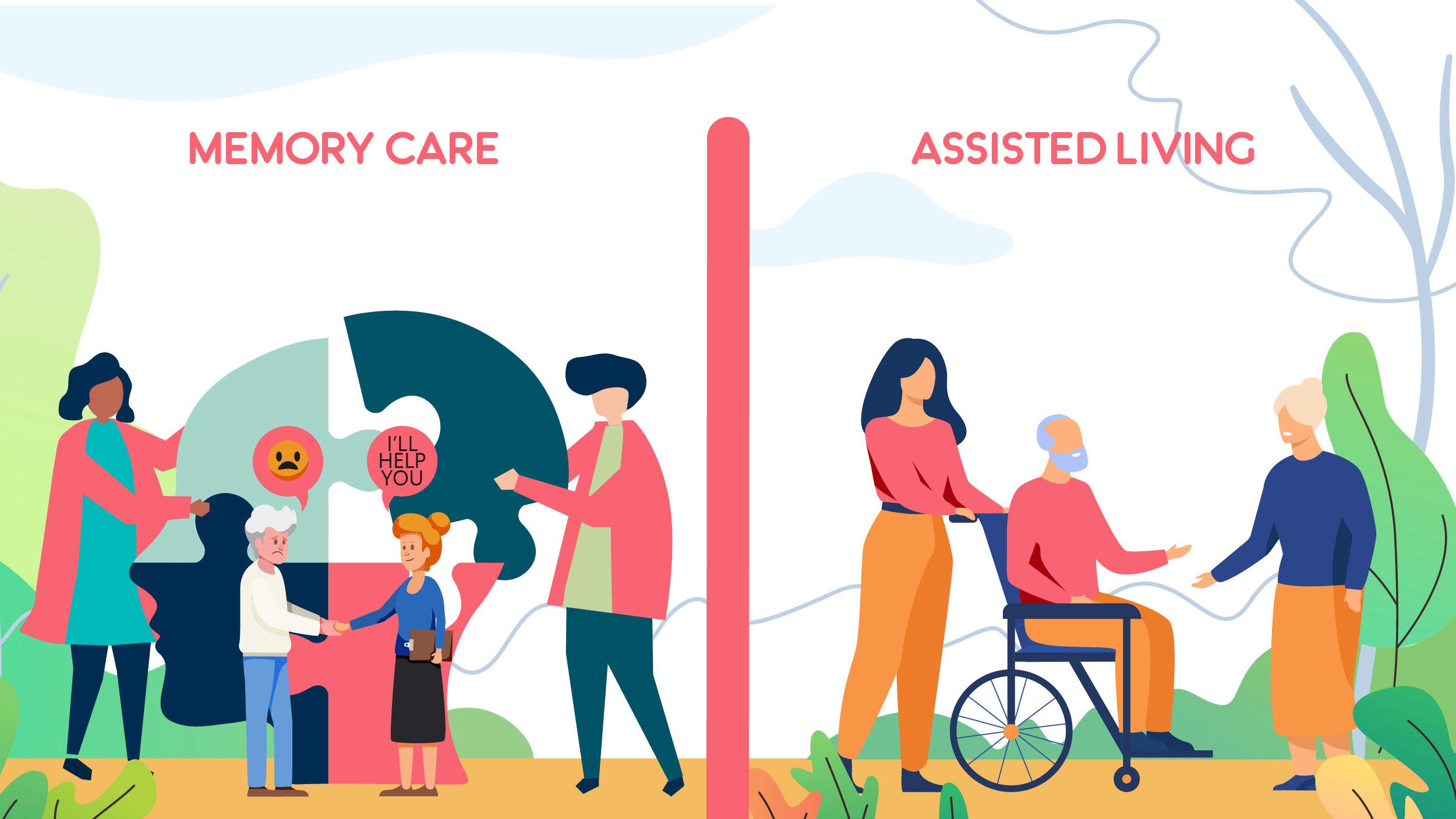Why Households Pick Dependable and Professional Alzheimers Care Charlotte Facilities
Thoughtful Alzheimer's Take care of Your Loved Ones
The intricacy of Alzheimer's disease requires a specialized strategy to care that emphasizes compassion and understanding. Identifying the emotional and mental needs of individuals affected by this problem is extremely important in boosting their lifestyle. Caregivers play a crucial role in creating an environment that cultivates dignity and regard, using techniques that advertise psychological connection and decrease stress and anxiety. As we check out the different methods and strategies that can transform caregiving right into a more thoughtful experience, it becomes clear that the trip is as much concerning the caretaker as it has to do with the individual with Alzheimer's.
Understanding Alzheimer's Disease
Alzheimer's disease is a modern neurodegenerative condition that mainly influences cognitive function, leading to amnesia, damaged reasoning, and modifications in behavior. It is the most usual kind of dementia, making up 60-80% of all situations. The illness generally manifests in people aged 65 and older, although early-onset Alzheimer's can take place in more youthful people.
The pathophysiology of Alzheimer's involves the accumulation of amyloid plaques and neurofibrillary tangles in the brain, resulting in neuronal deterioration and synaptic loss. These changes interrupt communication in between mind cells, gradually harming cognitive capabilities and daily functioning. Early signs may consist of problem remembering current events and obstacles in problem-solving, which can escalate to disorientation and problem with language.
As the illness breakthroughs, people may display profound memory shortages, complication concerning time and location, and problem identifying liked ones. Behavior changes, including anxiety, withdrawal, and frustration, may likewise occur. Understanding the professional progression of Alzheimer's is vital for caregivers and healthcare suppliers, as it notifies efficient administration methods and interventions customized to the requirements of individuals impacted by this debilitating condition.
The Relevance of Compassionate Treatment
Caring treatment is crucial in supporting individuals with Alzheimer's disease, as it substantially improves their lifestyle. This strategy prioritizes the emotional and emotional health of individuals, cultivating a setting that promotes self-respect, respect, and understanding. Individuals with Alzheimer's often experience complication, anxiety, and aggravation, which can be alleviated with thoughtful interactions.
Compassion in caregiving not only helps in recognizing the special needs of each person but additionally enhances the caregiver-patient relationship. When caregivers approach their roles with empathy, they produce a safe space where clients really feel valued and recognized, which can lower behavior challenges connected with the disease. This supportive setting motivates much better interaction and interaction, assisting in a much more effective response to the treatment given.
Additionally, compassionate treatment expands beyond the patient; it also incorporates support for family members. Caregivers that practice compassion are a lot more equipped to deal with the emotional problem encountered by loved ones, giving peace of mind and advice with a challenging journey. Eventually, the importance of thoughtful care hinges on its ability to change the caregiving experience, causing boosted end results for both individuals with Alzheimer's and their family members.
Practical Caregiving Approaches
Effective caregiving for individuals with Alzheimer's condition requires functional methods that resolve the unique difficulties presented by the condition. Among the primary techniques is establishing a constant everyday regimen, which can provide structure and familiarity, reducing anxiety for both the person and the caregiver. Caregivers ought to also streamline jobs by damaging them down right into smaller, manageable steps, thereby improving the person's sense of achievement and lessening aggravation.
Interaction is one more essential facet; caretakers ought to utilize you could check here clear, simple language and keep eye contact to foster understanding. Using visual signs, such as tags or photos, can better aid understanding and navigation in the atmosphere.
Safety is vital. Adapting the living space to remove threats-- such as protecting carpets or installing grab bars-- can assist prevent accidents. Furthermore, caretakers should encourage freedom by permitting individuals to take part in familiar activities, which can bolster self-confidence and advertise wellness.
Emotional Assistance Strategies
Emotional well-being is an essential part of take care of individuals with Alzheimer's condition, as it straight impacts their high quality of life. Alzheimers Care Charlotte. Supplying psychological assistance methods can dramatically boost their daily experiences and foster a sense of safety and security and belonging
One effective strategy is active listening, which entails providing full focus to the person, acknowledging their feelings, and responding with empathy. This method assists the individual feel valued and comprehended, decreasing feelings of isolation or stress. In addition, making use of validation therapy can be helpful; instead of correcting false impressions, caregivers can verify the individual's experiences and emotions, promoting a calming setting.
Participating in reminiscence treatment is another powerful approach, permitting people to share sensations, memories, and tales linked with their past. This not only stimulates cognitive feature but also enhances psychological connections. Including familiar music or art can also evoke positive feelings and trigger joyous communications.
In addition, guaranteeing normal physical touch, such as holding hands or mild hugs, can give comfort and reassurance, strengthening psychological bonds. These methods, when regularly applied, can create a nurturing atmosphere that supports the psychological health look at here now and wellness of individuals with Alzheimer's, enhancing their total well-being.
Creating a Supportive Setting

To start with, consider the physical design of the space. Clutter-free areas, familiar furniture plans, and well-defined paths can minimize complication and promote mobility. Using relaxing shades and appropriate illumination can better improve the environment, making it a lot more inviting and less frightening.
Secondly, consistency is vital. Keeping a predictable everyday routine helps individuals with Alzheimer's feeling extra safe. Familiar activities, routine meal times, and scheduled social interactions can significantly reduce anxiety and disorientation.
Furthermore, sensory components play a vital duty. Including familiar fragrances, songs, and responsive click reference objects can stimulate positive memories and boost interaction. Customizing the space with cherished photos and meaningful objects can also foster a sense of identification.
Verdict
Caring Alzheimer's treatment significantly improves the lifestyle for individuals affected by this progressive illness. By focusing on emotional health and carrying out reliable caregiving approaches, caretakers can promote an atmosphere that promotes dignity and belonging. Methods such as active listening and developing consistent routines serve to alleviate stress and anxiety while enhancing the caregiver-patient relationship. Eventually, this approach not just supplies vital comfort and assistance however also equips people to browse the complexities of Alzheimer's with self-respect and poise.
As we discover the different methods and strategies that can transform caregiving right into an extra caring experience, it comes to be clear that the trip is as much about the caregiver as it is about the private with Alzheimer's.

Thoughtful treatment is crucial in supporting people with Alzheimer's disease, as it dramatically improves their top quality of life - Alzheimers Care Charlotte. Ultimately, the value of caring treatment exists in its ability to transform the caregiving experience, leading to enhanced end results for both people with Alzheimer's and their family members
Thoughtful Alzheimer's treatment significantly boosts the quality of life for individuals impacted by this dynamic illness.